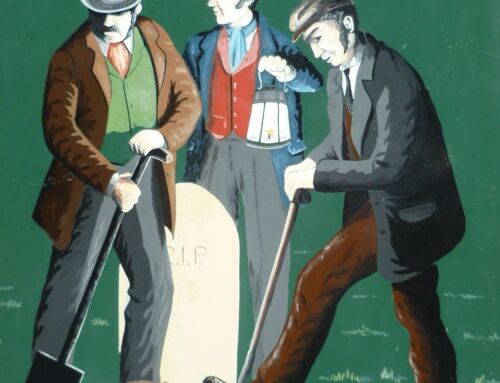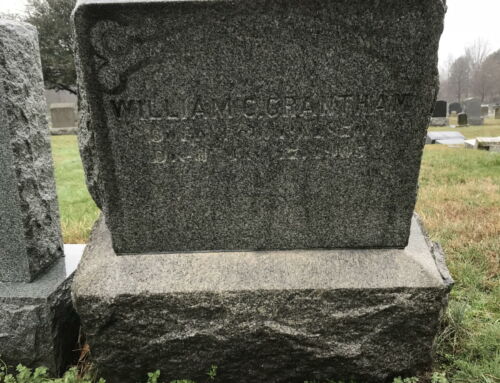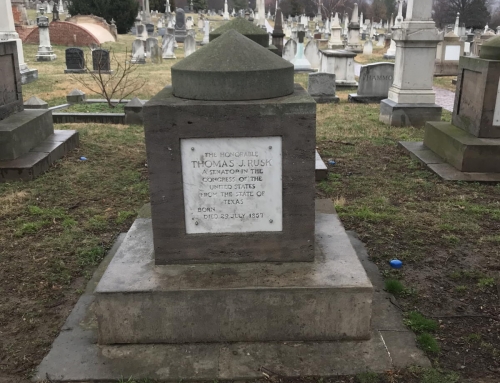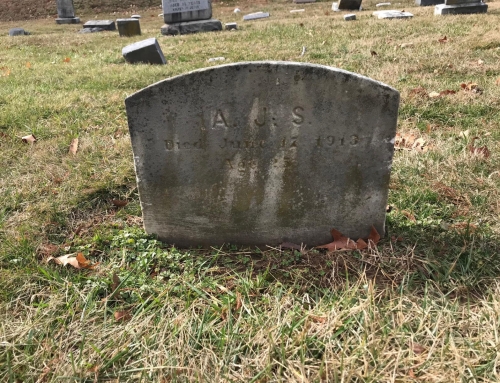If you live in Washington, D.C., it’s a well-known fact that 95% of introductory conversations begin with: “Where do you work/What do you do?” My husband frequently reminds me that I should start with “I work at a historic non-profit” and then move to the cemetery bit, a piece of advice I frequently forget. It’s either an instant conversation killer or starter, and I’ve come to realize that I enjoy either the moment of confusion/horror/distaste or the interest/fascination/delight that comes from telling someone you work with over 65,000 residents of Congressional Cemetery. Take it one step further and imagine telling someone that you put on public programs at a cemetery…you get my drift.
Thus, the staff here have a certain familiarity with the macabre. Really, don’t even get us started with the puns. I promise, we’ve probably heard them all. Armed with our new normal, a few of the staff members here decided to take a little time off work (really, we do this kind of thing for fun now) to travel to the Death Salon at Philadelphia’s Mütter Museum.
What is a Death Salon, pray tell? From their mission on their website:
“In the spirit of the eighteenth-century salon – informal gatherings of intellectuals – Death Salon encourages conversations on mortality and mourning and their resonating effects on our culture and history. We hold public events and provide an online community (through both Death Salon and our sister organization, The Order of the Good Death) to increase discussion on this often-ignored subject, focusing more on ideas and the broader cultural impacts of death than one’s personal interactions with mortality.”

HCC staff meet Caitlin Doughty, founder of The Order of the Good Death and author of Smoke Gets In Your Eyes.
Simply put, the Death Salon at the Mütter Museum was awesome. I know that’s not a particularly eloquent or sophisticated way to describe the event, but it does sum it up. Conference speakers waxed poetic about mummies at the Penn Museum, hosting programs at a cemetery (which obviously was of particular interest), the experiences of a medical examiner and the science of incorrupt saints. Moreover, all of these conversations and lectures took place at a museum that challenges “are you ready to be disturbingly informed?” Yes, yes we were.
Death Salons encourage approaching the seemingly unapproachable, which is something the cemetery staff are confronted with every day. When you work in a cemetery, it becomes a little harder to ignore the whole “death” thing. It’s all around us and it will eventually happen to us, so how do we talk about it with program attendees, customers, and tour groups? How do you create programs that poke a little fun at our mutually inevitable demise while still maintaining respect for the already deceased? Death Salons are all about bringing together like-minded people who are all contemplating similar questions, and the HCC staff benefited from the interactions and lectures we experienced during the two-day event.

The loot! Books we either picked up or got signed at the event (or both!).
In short, if you’re worried that you’re a little too interested in the particulars of death – don’t worry. You’re not alone. In fact, we picked up a few books (including one that we’ve already read for our Tombs and Tomes book club) that prove that very point. Check out The Order of the Good Death, Death Salon, some fantastic books about death and the death industry (see below) and while you’re at it, Congressional Cemetery events! We’re here for you, while you’re living and when you’re, well, not.
Smoke Gets In Your Eyes & Other Lessons from the Crematory, by Caitlin Doughty
The Death Class: A True Story about Life by Erika Hayasaki
Nine Years Under: Coming of age in an Inner-City Funeral Home by Sheri Booker
—Lauren Maloy, Program Director





Greetings from Colorado. Killer Story! Loved it and bought the Baltimore book.